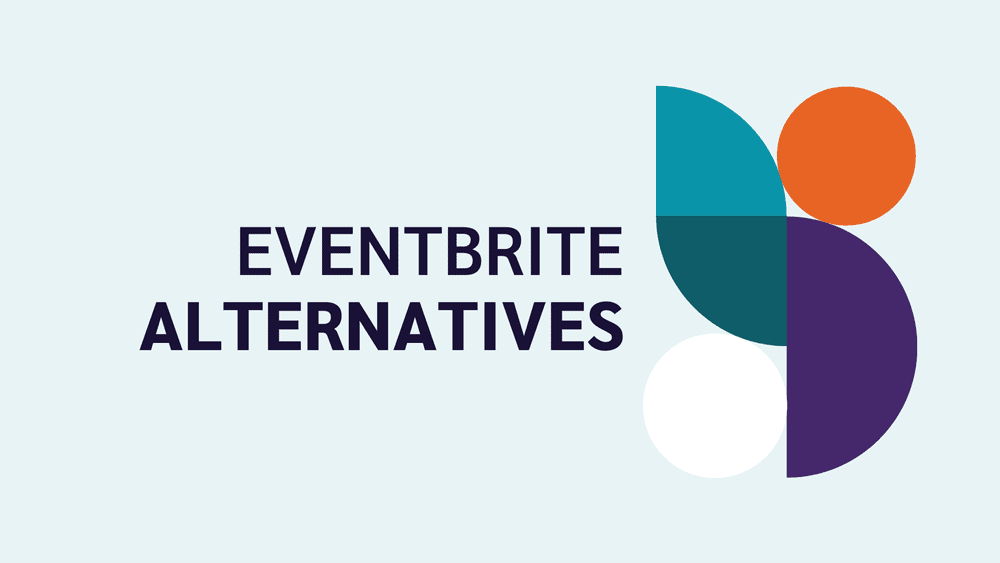27 Dec

Top Five EventBrite Alternatives in 2025
Eventbrite has developed a premium brand position among event planners and attendees alike over the past few years. Powered by the network effect of promotion to every event attendee who buys a ticket to attend an Eventbrite-hosted event, the platform is a clear leader in the event planning industry.
While EventBrite’s user base and valuation certainly prove its worth, event professionals are often frustrated by some of the limited user options, inability to forefront their own branding, or cost structures. It’s not hard to find complaints on social media:
If you are one of the many event professionals are searching for platforms that offer more control, better branding flexibility, or lower fees, we’ve got you covered. Here are five great Eventbrite alternatives to consider instead:
#1 RSVPify
Best for: Event professionals seeking complete customization and an all-in-one event management experience.
Features:
•Full white-label branding and custom event websites
•Ticket sales, RSVP tracking, guest management, and check-in tools—all in one place
•Conditional logic for RSVP flows (great for complex or private events)
•Multi-event dashboards for enterprise clients
Pricing:
• No setup fee
•Ticketing fee: 1.95% + $0.90 per ticket (lower than Eventbrite)
•Free tier available for RSVP-only events
•Ticketing fee calculator to estimate costs
Unlike most platforms, RSVPify was built with event design in mind—not just selling tickets. From weddings and galas to enterprise events, RSVPify gives you end-to-end control over every detail.
#2 Ticketbud
Best for: Event organizers looking for affordable flat-fee pricing and full branding control.
Features:
•White-label functionality to showcase your brand—not the platform’s
•Integrated marketing tools to manage outreach and promotions
•Real-time reporting and analytics
•Event pages can be embedded or linked anywhere online
Pricing:
•Flat fee: 2.9% + $0.99 per ticket
•No tiered pricing or setup fees
•Offers a freemium plan for basic features
Ticketbud is particularly appealing for event planners who want predictable pricing and a user-first interface without Eventbrite’s branding plastered across the experience.
#3 Regfox
Best for: Users looking for control, customization, and low-cost ticketing.
Features:
•Full white-label support and advanced design flexibility
•Conditional logic and registration rules (ideal for complex events)
•Upsell and donation tools built into the checkout flow
•Supports multiple payment gateways and digital ticket delivery
Pricing:
•Flat fee: $0.99 per paid registrant (plus Stripe or payment processor fees)
•No monthly subscription required
•Free for free events
RegFox is especially popular among high-volume event organizers and faith-based organizations due to its customization engine and low fees.
#4 Eventcreate
Best for: Users who want beautiful, modern event websites with minimal setup.
Features:
•Drag-and-drop event website builder with custom themes
•Accept RSVPs or ticket sales directly from your custom site
•Embed videos, maps, or custom branding elements
•Email invitations, guest list management, and post-event follow-up tools
Pricing:
•Free tier for basic RSVP-only events
•Paid plans start at $39/month for ticketing and custom branding
•2.9% + $1.30 per paid ticket (when using ticketing features)
If your top priority is creating a beautiful branded event page quickly, Eventcreate is a user-friendly and budget-conscious option.
#5 MeetUp
Best for: Community organizers, recurring event hosts, and interest-based groups.
Features:
•Built-in audience discovery via the Meetup network
•Host recurring events and accept donations, dues, or ticket sales
•Easy mobile experience for attendees
•Analytics and member management tools
Pricing:
• Organizer subscription required: Starting at $16.49/month
•No per-ticket fees, but payment processing fees may apply
Meetup isn’t a traditional ticketing platform, but it’s an excellent tool for building community, especially if you’re hosting niche or recurring events.
Adam Hausman co-founded RSVPify in 2013 and has been passionate about event tech and ticketing software ever since. Also founder of Greenlight Growth Marketing, he holds degrees from Indiana University (BA English/Psychology 2008) and the University of Illinois-Chicago (M.Ed. Secondary Education 2012). He lives in Maine with his wife, 2 kids, and 2 annoying cats.










Adam Hausman